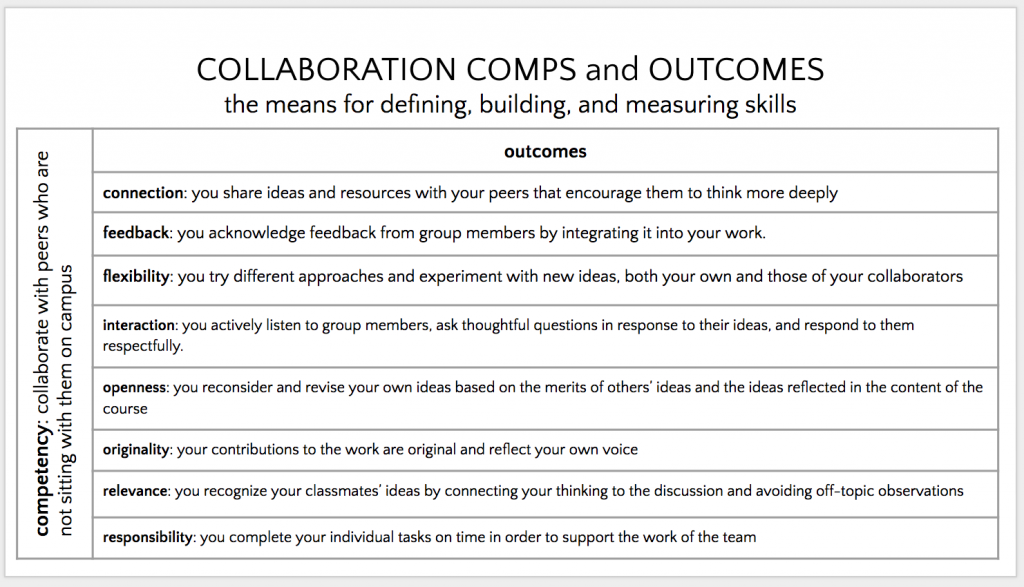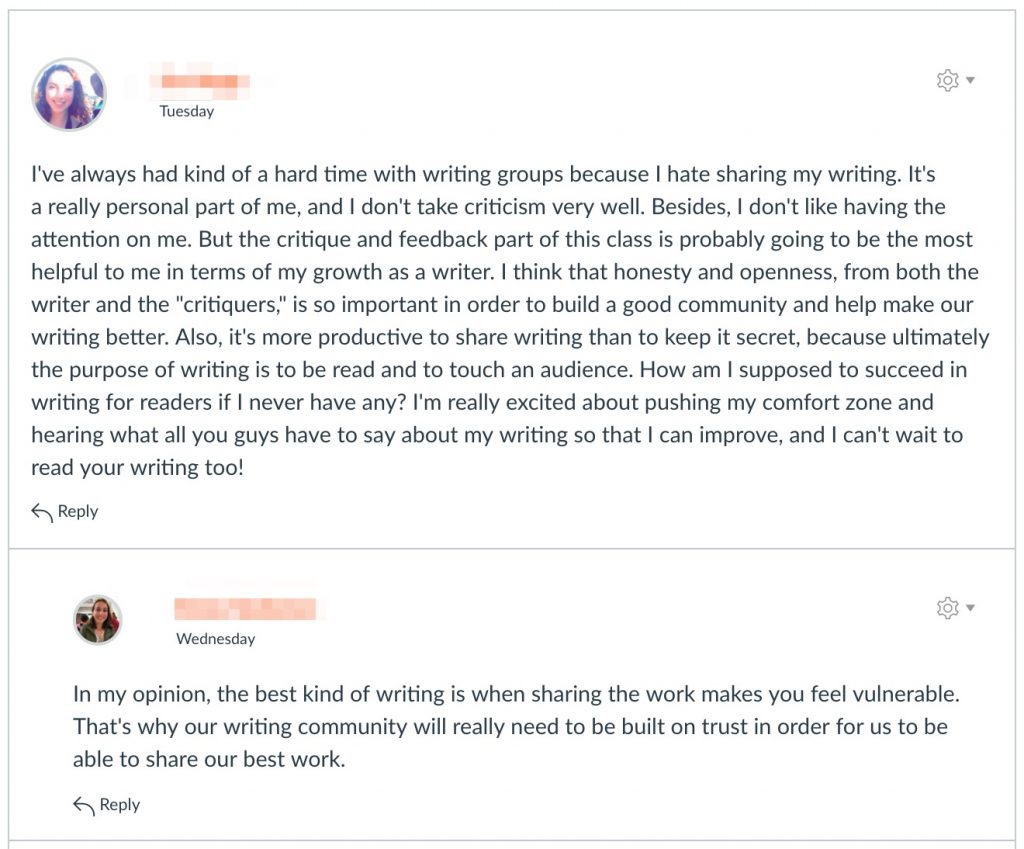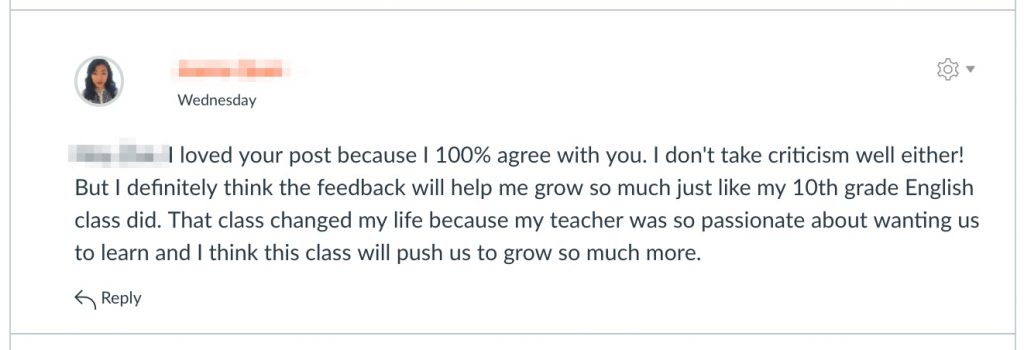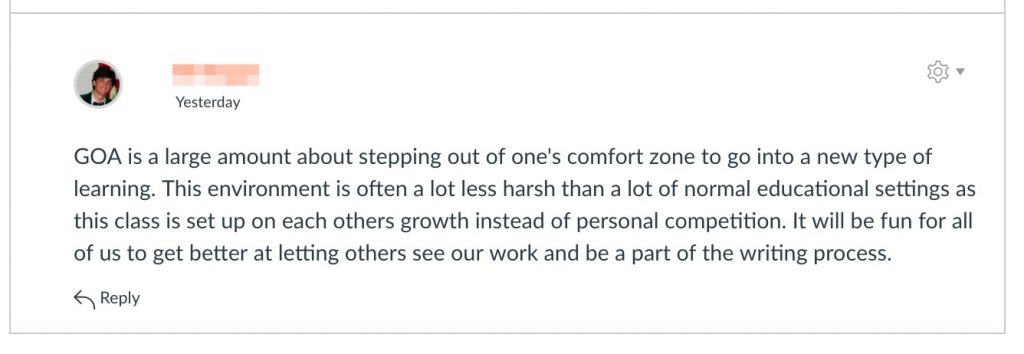Collaboration as Competency: How to Empower Students to Work Together
Is collaboration becoming a term like…
innovation?
organic?
or feminism?
That is, has it come to mean everything and (potentially) nothing?
Collaboration is often bandied about as a critical 21st-century skill, which amuses me, given that some of us were collaborating in the 20th century. Part of our troubles in schools may come from collaboration’s amorphous nature in tandem with inconsistently coaching students on how to do it, not providing enough hands-on practice and feedback on their efforts, and rarely asking them to self assess. But, students aren’t alone. Many of us “collaborate” in our professional and personal lives, but how often do we, when launching a project, focus on how we’ll work together prior to the what of our work?
What does it take to figure out the how before the what? The process prior to the product? What if we explicitly taught collaboration skills and coached students as they worked to develop them? How would we measure them?
What is collaboration?
Let’s start by articulating exactly what we mean by “collaboration.” I recently bumped into Cutting through the Hype: What “Collaboration Really Means and have fallen in love with its clean, crisp definition of collaboration:
two or more people working together towards shared goals
To enable students to collaborate, they need to get what it is and what it isn’t. Some struggles with collaboration have to come from confusing it with communication and interaction, both of which matter for collaboration, but neither requires shared goals and aren’t collaboration in and of themselves .
Building Collaboration Competency
At GOA we’ve developed a collaboration competency and eight outcomes for measuring it.
GOA teachers have integrated this competency into their courses in many ways, including asking students to self-assess (before a project) using the outcomes. In doing so, students can consider the roles they have played and will play in groups. Often they also think about what derails group work. Ideally, such self-assessment begins the work of building a collaborative climate and culture while engaging students in what they need to do, how they need to show up, and what authentic work with other people looks like.
The outcomes are specific about how they’ll engage with and communicate with each other. What do we communicate to our partners when we miss deadlines? When we show up on time and prepared? Or listen well and incorporate someone else’s ideas into ours or apply feedback given?
Collaboration in Action: Building a Healthy Writing Community
In our Creative Nonfiction course, the centerpiece of collaboration is actionable, specific feedback on each other’s writing, often within a workshop setting. The shared goals of that collaboration:
- help others’ writing improve
- become skillful at providing feedback and not “hollow compliments”
- learn to accept, digest, and apply feedback
- improve your own writing through observing, analyzing, and commenting on others’ writing
- build a trusted community dedicated to writing and learning
Fulfilling these goals comes from individual preparation for writing workshops and courageous communication, interaction, and close listening when they take place. Since the above outcomes are articulated early and used to assess collaboration, students can approach collaboration with intent and focus. Further, this type of feedback and making excellent use of it are possible because of the collaborative climate built early on.
The work begins in a discussion where students consider and anticipate the workshop protocol and the feedback format (the writer listens silently while other group members discuss the writing), they focus on what will be hard for them, how they can engage with the process, each other, and their writing, how to avoid being overly product-oriented, and how in this setting there are non-negotiables for their work habits: what their teacher, Becky Green, refers to as “sacred deadlines.”
In introducing the discussion, Becky describes her own experiences with writing groups and talks frankly about the messiness of the process. She makes clear the qualities of actionable feedback and its value. As she says, “This is about fueling ourselves with ideas from other people.”
Becky’s setup here, which also includes outcomes for their participation in the discussion, proves its worth when we see how the students engage with each other and the ideas that result from their exchanges.
They capture the opportunities that come from collaborating with each other, even identifying how this approach differs (“a new type of learning” ) from what’s more common in their school experiences, which often focus on “personal competition.”
It’s heartening and inspiring to see how this student focuses on learning and growth, which are prioritized in a collaborative approach with shared common goals over one’s own success.
The Truth about Collaboration
It’s hard. It’s slow. It’s frustrating. It requires patience. We don’t consistently set it up well. And, confessional moment: sometimes I dread collaboration. That said, I’ve done my best work when collaborating and some of that came after impressive collegial struggles. Working with other people has pushed me more than anything else to scrutinize the role I play in groups and to identify where I need to improve and how to privilege the group’s goals over my own. But beyond my growth, such challenging work with others, in pursuit of shared goals, has led to better end results, where we’ve built excellent programs or solved thorny problems: just what we want students to do now and in their work futures. Imagine what might happen in workplaces if far more people showed up with collaboration competency.
Additional Resources
Cutting through the Hype: What Collaboration Really Means
Eight Dangers of Collaboration
Getting Middle School Students Doing Productive Group Work
You Just Had a Difficult Conversation at Work: Here’s What to Do Next
Global Online Academy (GOA) reimagines learning to enable students and teachers to thrive in a globally networked society. Professional learning opportunities are open to any educator. To sign up or to learn more, see our Professional Learning Opportunities for Educators or email hello@GlobalOnlineAcademy.org with the subject title “Professional Learning.” Follow us on Twitter @GOALearning. To stay up to date on GOA learning opportunities, sign up for our newsletter here.




